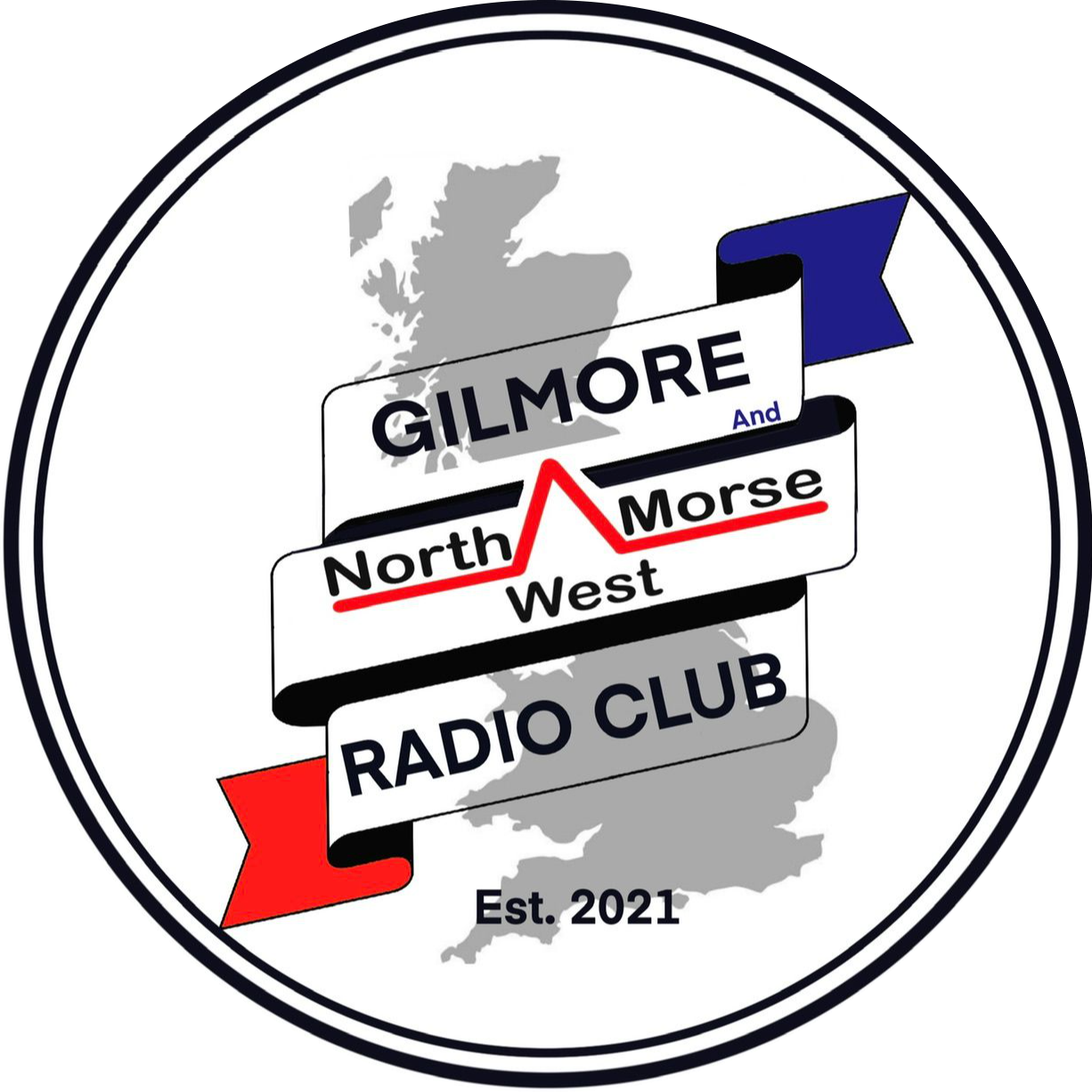Gilmore Radio Club – CW Corner News No 4, by David M0WDD
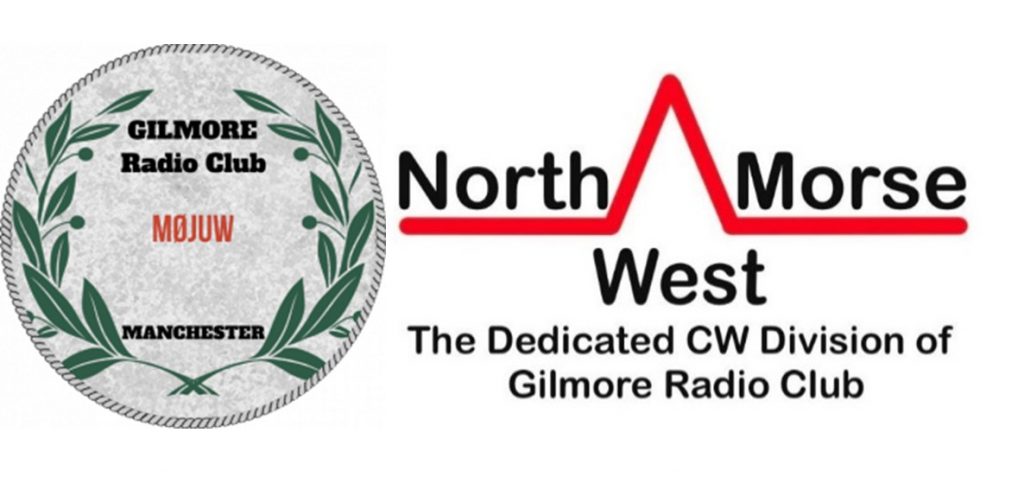
Welcome to CW Corner News No 4 from the friendly Gilmore Radio Club. I hope members enjoyed the first three CW Corner News. Do let us know what you think, and your ideas and suggestions for future articles are very welcome. Just email David M0WDD through the GRC Group email.
In this CW Corner News No 4:
- North West Morse CW nets – what are they?
- Can you “give up” on learning CW and live to fight another CW day?
- We asked some our net regulars for their three tips on learning CW
- The Gilmore Radio Club CW Quiz Number 3 ANSWERS
- The Gilmore Radio Club CW Quiz Number 4 QUESTIONS
- In Next CW Corner News No 5
- And Finally
1. North West Morse CW nets – what are they?
You can listen to or join in with the North West Morse CW nets every Sunday at 7:30pm. The schedule is on the GRC website https://m0juw.co.uk/ under “Events” in the Home page. Members and non-members are very welcome.
Net participants currently use CW paddles at speeds ranging from 15wpm to 20wpm depending on participants working speeds.
We use different frequencies each week to allow for different Ops station situations and we alternate between a regular CW net and a Training/Quiz CW net week by week.


Regular CW Net; runs 17-20 wpm depending on callers, and follows standard QSO format of exchanges of Callsign and RST Report, then Name & QTH (location), then followed by any news. The news does not need to be technical, so as well as chatting about our rigs, antennas and Morse keys, we often chat about general activities.
Training/Quiz CW Net; runs usually at 15 wpm, and follows format of exchange of Callsign and RST Report, then a topic – usually decided in advance and also announced on the net – which could be for example a hardware item, food item, type of pet or similar. Each op in turns sends what they heard and then adds a new word, then on to the next Op, so we build up a short list of words.
The emphasis in both nets is on short overs between the net controller and each op in turn, so everyone has a chance to participate. Each net finishes with a round of Finals and then the net controller closes the net.
The aim of North West Morse is to encourage use of CW in the North West and further afield. This is done by practical support, and on air QSOs and nets for beginners and more experienced CW Operators – all are welcome.


Both North West Morse CW nets are just for fun and the aim is to give members and non-members some live on air CW experience between friendly helpful ops. Club Listeners are encouraged to send in a listening report using the GRC Gmail system.
2. Can you “give up” on learning CW and live to fight another CW day?
Put another way – can you pause, take a rain check, have a rest, and try again with a different approach? Yes, you can. That has certainly been my own experience. Many other Ops go through the same experience – give up – have a rethink – try again.
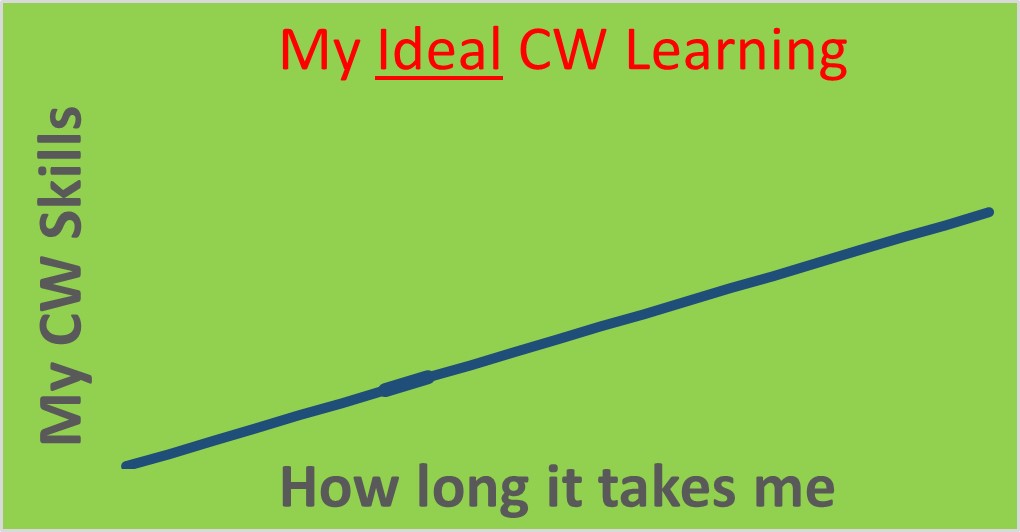
So what is the ideal CW Learning progress?
It would be great if it looked like this!
As each of us learn differently, our CW learning progress can vary in unexpected ways.
A wise Op once said to me that learning CW is not a steady upwards trend, but that everyone goes through ups and downs, and is a process of building your own CW skills, at your own pace over time – and that you will get there! The key is to find what works for you, work out a plan, vary it if you need to, and try to stick to it.
So listening to other Ops; planning your own learning plan; changing your plan when you feel the need; asking for help; regular practice; join a CW club – are all good steps you could consider.
So a realistic actual CW Learning progress may look something like this – lots of ups and downs, flat times, steps down, and sometimes a small step up! You will gradually get there.
It can be a tough road – but this makes your eventual progress much more rewarding.
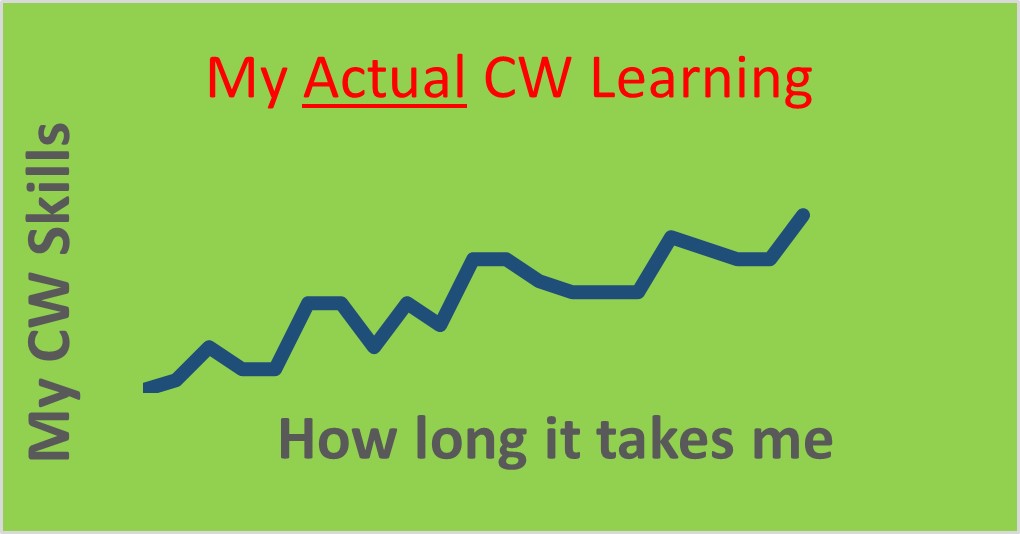
3. We asked some of our net regulars for their three tips on learning CW
It is always good to consult others who may be more experienced or who may have been in a similar situation as you in learning CW. Opinions differ of course, but there is always merit in listening to others. So here are five NWM CW net regulars giving their three top tips in learning CW.
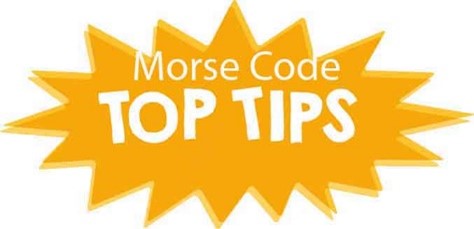
Chris 2E0KJC
- Get a twin paddle of reasonable quality
- Spend lots of time listening to CW at different speeds
- Practice as much as possible and don’t be afraid to get on the air when you can recognise callsigns
Keith M0JYP
- Practice an hour a day if you can
- Don’t worry too much about head copy at first, plenty of apps to assist
- Start at a reasonable speed of at least 15wpm
Graham M0IYP
- Learn to read Morse at a fair speed before you start sending
- Start listening at 20wpm or thereabouts; at that speed you can’t think of dashes and dots but have to learn the rhythms
- Regular practice; try 5-10mins a day; and have a weekly day off too
Norman G1HHU
- Learn to head copy all characters and numbers at a fast rate but with long gaps between characters, such as 35wpm and 10wpm character gaps, and longer gaps of 2 secs between words
- Sign up for a CW Academy course
- Join the Long Island CW club
Jamie M1JSC
- Small amounts of practice a day better than one or two longer sessions a week
- As well as online tools for learning to copy, listen and copy on-air too to experience band conditions. Lots of QSOs follow a similar format, so you can usually pick things out even if you don’t get everything, and it helps train your ears
- Everyone messes up from time to time so don’t worry about it, and keep going
David M0WDD
- Sort yourself a study plan, but don’t be afraid to change it as much as you need to
- Learn at 20wpm or faster, so you learn the pattern for each character
- Learn to send at same time as you learn to copy, so you develop “muscle memory” in sending
4. The Gilmore Radio Club CW Quiz 3 – ANSWERS!
Q7) Which part of our memory do we use to decode incoming CW? – CONSCIOUS MEMORY OR SUBCONSCIOUS MEMORY
Q8) What are the main parts of a CW paddle? Switches, levers, arms, springs, base
Q9) Which part of a ham radio band is generally used for CW? Generally in lower part of each band, but this is only by friendly agreement
5. The Gilmore Radio Club CW Quiz 4 – QUESTIONS

The answers are hidden elsewhere in this GRC gazette!
Q10) What is the Morse Code for North, in Dits and Dahs?
Q11) In Morse code, what are Q codes?
Q12) What is QRP power level for CW?
6. In Next CW Corner, No 5
The next CW Corner issue will include these topics:
– NWM/GRC club CW activities
– Two recommended free books about learning CW
– A look at CWops and what they offer in learning CW
7. And Finally
If you would like any help in learning CW with practice CW QSOs, please contact Chris 2E0KJC or David M0WDD through the GRC Gmail system.
Until next time, best wishes from David M0WDD, North West Morse, Gilmore Radio Club, Sept 2022.
